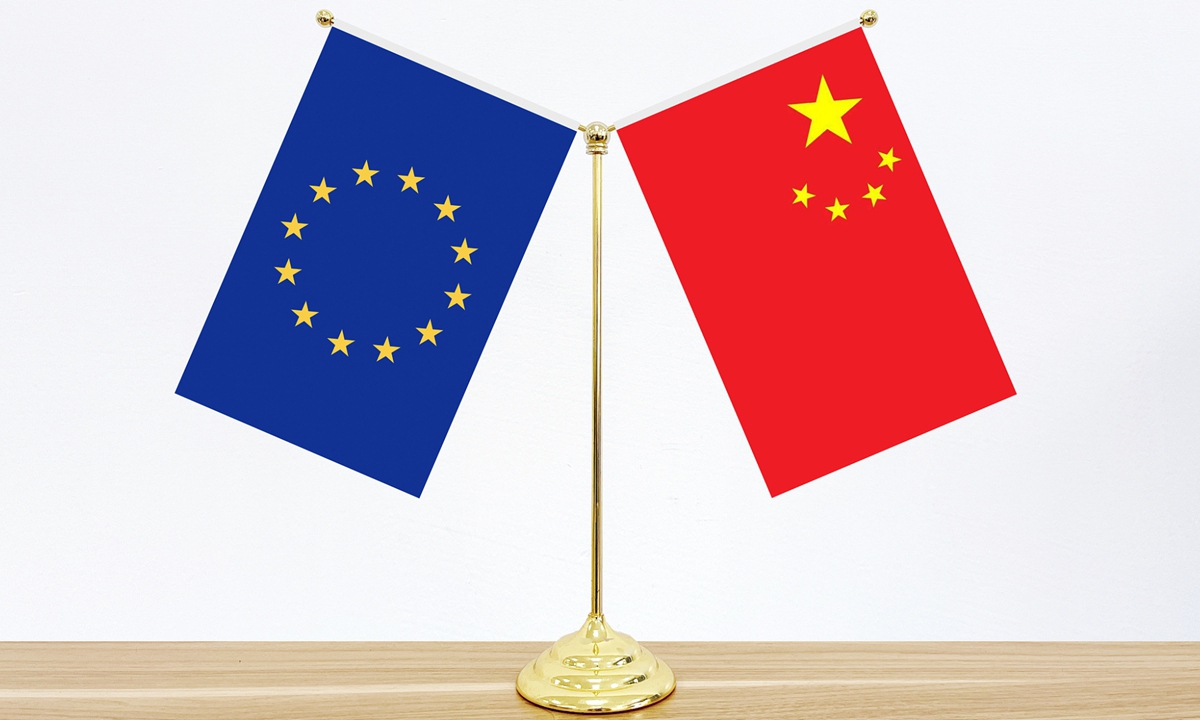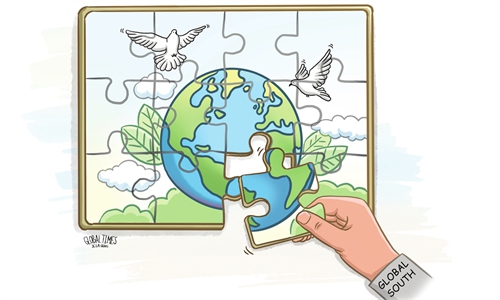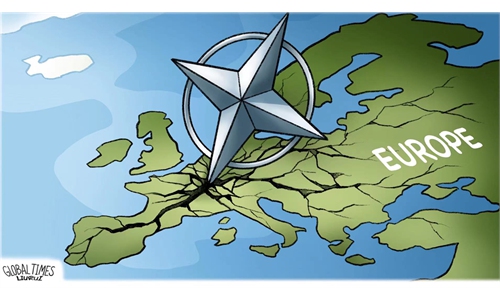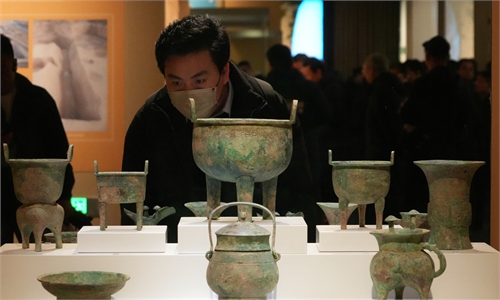EU urged to avoid uncertainties as China expresses high concerns over EU’s probe on Chinese EVs

China EU Photo:VCG
China's Minister of Commerce Wang Wentao on Monday said that China is highly concerned about the EU's trade remedy investigation targeting Chinese electric vehicles (EVs) and other products, while also expressing strong dissatisfaction regarding the investigation, which lacks a factual basis.
Wang made the remarks during his meeting with Executive Vice-president of the European Commission Valdis Dombrovskis in Abu Dhabi, United Arab Emirates on the sidelines of the WTO's 13th Ministerial Conference (MC13), China's Ministry of Commerce (MOFCOM) said in a statement on Tuesday. They exchanged views on economic and trade relations and issues of concern for both parties.
Observers highlighted the strengthening and growing cooperation between China and the EU. They also urged the EU to stop implementing practices such as the anti-subsidy probe targeting Chinese EVs, which will only increase uncertainties for bilateral cooperation while negatively affecting industry and supply chains.
Chinese carmakers have been expanding in the EU by establishing local sales and service centers along with factories, which offer many jobs and promote local economic development, and the benefits may be disrupted by EU sanctions, Wu Shuocheng, a veteran automobile analyst, told the Global Times on Tuesday.
Wu added that increasing tariffs or restricting imports of Chinese EVs would only result in a higher cost for EU industry players, as China shares the major advantages of relatively low costs.
As China and Europe are both firm supporters of the multilateral trade system, the two sides should seize the opportunity of the MC13 and jointly work on promoting more pragmatic results in aspects such as reforming the dispute settlement mechanism, fishery subsidies, investment facilitation and e-commerce, Wang noted.
China and the EU share great common interests in economic and trade issues with growth potential and resilience, Cui Hongjian a professor with the Academy of Regional and Global Governance at Beijing Foreign Studies University, told the Global Times on Tuesday.
Cui added that the EU has been strengthening economic security, and the policy changes may create uncertainties in China-EU relations. The meeting showed that the two sides share a common position in supporting an open economy and free trade, while strengthening cooperation under the WTO rather than weakening it.
Dombrovskis said that the EU attaches great importance to Europe-China economic and trade relations. The EU appreciates China's active implementation of the outcomes and consensus reached by high-level exchanges between the two sides, while realizing good progress on addressing the concerns of European enterprises.
"Europe and China are major trade partners and important world economies, and they have the responsibility to promote the MC13," said Dombrovskis, noting that the EU and China have cooperated well under the WTO, and the EU is ready to work with China to facilitate the MC13 in achieving fruitful results.
The EU has turned a deaf ear to the Chinese side's representations and opposition to including four Chinese companies in its 13th package of sanctions against Russia, the MOFCOM said on Monday, saying that it is a case of unilateral sanctions and long-arm jurisdiction and will have a negative impact on China-EU trade relations
The EU has been implementing more protectionist measures in response to the anti-globalization trend while geopolitical factors will also affect economic and trade exchanges, Cui said. He said that the EU has been bringing unnecessary factors into the bilateral relationship.
Normal trade and economic cooperation should not be affected by non-economic factors, and the EU should not link China's normal economic and trade exchanges with other economies to China-EU relations, Cui said.



